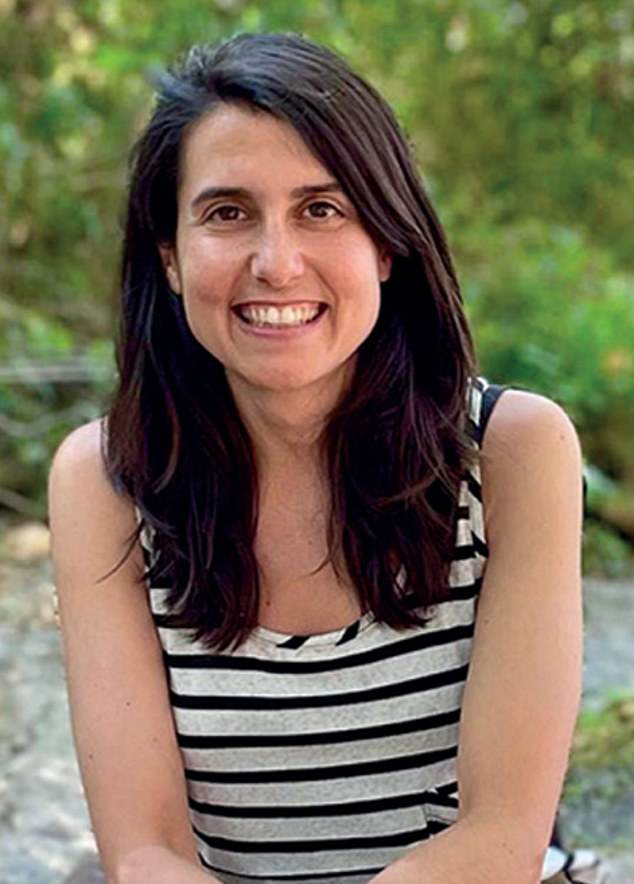Martin Pickard awoke in a state of terror. He had been dreaming that he was in the back of a London taxi, interviewing DJ Tony Blackburn. The back seat of the cab was littered with McDonald’s cartons which, to his horror, began to move.
‘The rubbish was covered in spiders,’ Martin recalls. ‘They were getting bigger and bigger, and when one the size of a wastepaper basket launched itself at my face, I threw open the cab door and jumped out – headfirst into the bedside cabinet.’
Martin, a retired chartered surveyor from Cranfield in Bedfordshire, came to with blood pouring down his face. His wife, Penny, 61, a retired soft furnishings business owner, rushed into the room to find him with a deep cut and a black eye.
It wasn’t the first such frightening incident caused by the increasingly vivid and violent dreams he had been experiencing for over a decade – but it was the first time he had ended up in A&E as a result.
What Martin, now 70, didn’t know was that these nightmares were, for him, an early warning sign of Parkinson’s disease, a progressive disease of the brain and nervous system.
Martin’s nightmares were due to rapid eye movement sleep behaviour disorder (RBD), which typically causes ‘vivid dreams that are often distressing – for instance, involving dangerous situations – together with acting-out behaviours, such as lashing out, kicking, punching, shouting, talking and even singing or whistling,’ explains Dr Laura Pérez-Carbonell, a consultant neurologist and sleep medicine specialist at Guy’s and St Thomas’ NHS Foundation Trust in London.
As the name implies, this happens during rapid eye movement (REM) sleep, ‘the stage when we typically have more vivid dreams and that is also thought to play a role in memory consolidation’, says Dr Pérez-Carbonell.
In Martin’s case the nightmares could be so vivid that at times he has been too scared to sleep.

Martin’s nightmares were due to rapid eye movement sleep behaviour disorder (RBD), which typically causes ‘vivid dreams that are often distressing’ and can be an early sign of Parkinson’s disease
‘They were straight out of a Stephen King horror novel: skin peeling off, insects moving under my skin, cats eating my feet,’ he says.
Often they were accompanied by what he describes as ‘active dreaming’, where he was acting out whatever he was doing in his dreams. ‘If you’re kicking a football in your dream, you’re kicking your wife in the bed,’ he explains. ‘The dreams weren’t just dangerous for me, they were also dangerous for Penny.’
Normally during REM sleep, our muscles become atonic (temporarily immobile). ‘But people with RBD act out their dreams due to a loss of this atonia,’ says Dr Pérez-Carbonell.
RBD is caused by changes in parts of the lower brain: these areas can also be affected by the accumulation of a protein called alpha-synuclein, which occurs in those with Parkinson’s, she adds.
Parkinson’s – which affects around 166,000 people in the UK – occurs due to progressive loss of cells in the brain which produce dopamine, a chemical messenger crucial to movement.
Symptoms can include tremor, muscle stiffness, balance problems, loss of smell, anxiety, depression and sleep disturbances.
Not everyone with RBD goes on to develop Parkinson’s, and vice versa. But as Dr Pérez-Carbonell explains: ‘People with RBD are at a particularly increased risk of developing Parkinson’s.’
Around 50 per cent of patients diagnosed with Parkinson’s also have RBD, ‘with about 20 per cent of these RBD cases actually having preceded their Parkinson’s diagnosis’, she says. ‘Sleep problems are extremely common in patients with Parkinson’s.

‘RBD can start years or even decades before the typical Parkinson’s mobility issues,’ says Dr Laura Pérez-Carbonell, a consultant neurologist and sleep medicine specialist at Guy’s and St Thomas’s NHS Foundation Trust in London
‘Studies show that up to 80 per cent of patients with Parkinson’s have sleep issues such as insomnia and restless legs syndrome five years post-diagnosis, but RBD can start years or even decades before the typical Parkinson’s mobility issues.
‘We need to do further scientific studies for more clarity on this.’
The link between Parkinson’s and sleep problems is thought to be multifactorial, including in part due to damage to the brain’s sleep/wake cycle – but possibly also as a result of damage to the lower brain.
Martin’s sleep problems began in 2005. At the time working long hours due to his demanding job, he often struggled to sleep. And when he did finally drop off, he was increasingly plagued by vivid nightmares.
In 2018, with Penny by then desperate to get a good night’s sleep – impossible when Martin was thrashing about and shouting – the couple reluctantly decided to sleep in separate bedrooms.
‘It felt really sad that we couldn’t go to bed together any more,’ says Martin.
But it pushed him to investigate why he was having these dreams, and he came across information about RBD online, by which time he was getting by ‘on two or three hours’ sleep a night and making silly mistakes because I was so tired’, he says. ‘I paid my VAT twice; I booked a hotel for the wrong month.’
Martin saw a neurologist and underwent a sleep study, which confirmed he had RBD.
‘I was warned that a high percentage of patients go on to develop Parkinson’s,’ he says.
At that time Martin wasn’t displaying the characteristic physical symptoms, such as a stiff gait or a tremor.
However, over the next two years ‘my Parkinson’s bingo card was filling up’, he recalls.
‘I developed stiffness and experienced cognitive decline. I’d lost my sense of smell way back in 1980, which I didn’t then know can be a precursor to Parkinson’s, too.’ In these patients, loss of smell, or hyposmia, is thought to be a consequence of the degeneration of nerve cells in the brain responsible for processing smells.
It was in 2020 that Martin’s Parkinson’s diagnosis finally came. While a shock, it also brought relief.
‘At least I knew I wasn’t going insane,’ says Martin.
‘I went through what I guess everybody who gets diagnosed with Parkinson’s goes through: How long have I got? I’d seen Muhammad Ali on the telly – am I going to be like that next year?’
Martin set about overhauling his work and lifestyle.
‘I started working less and I took practical steps to make my home safer, so that if I had violent dreams I’d be less likely to hurt myself – removing sharp objects from my bedroom and installing movement-activated night lights.
‘I don’t have a glass of water by the bed any more; it’s in the bathroom, to be safe.’
Martin also embraced new routines to improve his sleep.
‘I make sure I go to bed at the same time every night, and get up at the same time every morning,’ he says. ‘I avoid alcohol, coffee and blue screens before bed. Hydration helps, too – it helps my sleep and my constipation, which is a major issue in Parkinson’s.’
These changes have made a significant difference: ‘I now get four or five hours’ good sleep a night,’ he says. ‘And when I’ve had a good night’s sleep, my Parkinson’s symptoms are not so bad the next day.’
Becky Jones, from the charity Parkinson’s UK, says greater understanding of how disturbed sleep might impact Parkinson’s is needed.
‘If we can start to understand the link, we may be able to trial new treatments that could slow down the progression of Parkinson’s symptoms before diagnosis,’ she says.
Dr Pérez-Carbonell says lifestyle changes and improved sleeping habits can help patients with sleep-related problems, as can reviewing a patient’s medication, as some of those used for Parkinson’s may be implicated. For instance, drugs that mimic the action of dopamine can lead to nightmares, sleepiness and insomnia.
But she adds: ‘There are also some therapies used in Parkinson’s which are known to improve certain sleep disturbances such as restless legs syndrome.’
Martin’s condition continues to progress, but he has found solace in creativity and now runs a group called Poets with Parkinson’s.
These days, his dreams are surreal, rather than frightening: ‘Recently, I dreamt I was on a raft made from marshmallows, while I tried to save Miley Cyrus from pirates,’ he says.
‘For some reason, my dreams often involve celebrities.’
To learn more about Parkinson’s effect on sleep and how to manage it, visit: youtube.com/watch?v=1S6GauUXVec












